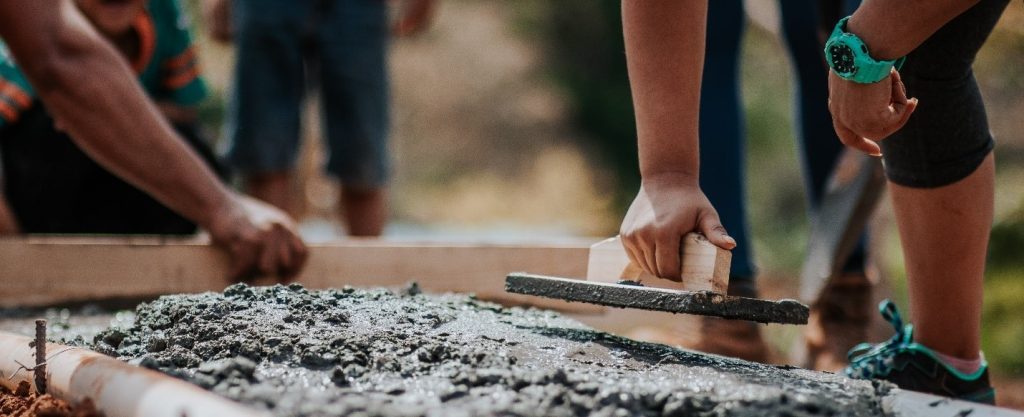
Holding the deed to real estate is long associated with stability and financial security. What if some of that security could be shared by — and build up— communities?
This article is a thought experiment. Let’s imagine how things could play out if local residents could invest small amounts in a building. How would this unfold? Could blockchain make community-based real estate investments happen?
Digital Approaches to Financial Accessibility
Traditionally, real estate investments were mostly for corporate actors and the wealthy. They’ve long been very heavy on the paper chase and on gatekeepers.
Blockchain could be one idea that makes space for change. One key reason? It allows people to buy fractional shares of a property. This is already allowing investors to team up and own properties together.
Because of this feature, blockchain could create on-ramps for investors with limited means.
Key Elements: Tokens
One building can be divided. Digital tokens represent each owner’s share. One property; multiple tokens.
In this model, what we know as traditional property rights are represented by digital tokens. Each token is backed by value, and each signifies an ownership share. All are indelibly etched onto the blockchain.
So, the token itself is a digital record of ownership. By investing together, all individual owners can hold high-value properties without the need to pay heavy costs upfront. This is why tokenization has the potential to make equity-building more inclusive.
Parties Know Where They Stand
In the deals we’ve grown up with, fee-charging brokers and escrow accounts are indispensable. With blockchain, buyers and sellers can securely exchange property and act as custodians of the value.
Also, blockchain-based transactions integrate smart contracts for money transfers once contingencies are met. They work automatically, rather than relying on fee-charging professionals. A smart contract becomes part of the blockchain’s code, so the parties know their terms and conditions, and can always check in on where they stand.
And nothing can get lost. Property and title information are stored in one place, on a secure ledger. The transparency in this model reduces fraud risks as well as heading off disputes.
This organizational tool is a key advance that blockchain could offer the real world of property ownership.
Property Records, Simplified
For the Business Law Digest at the University of Southern California’s Gould School of Law, Dawson Sanders writes on the concept of blocktitle. With digital technology, a property’s full history of ownership, valuations, and even comparable property prices, along with all other relevant details, get etched onto the blockchain ledger. It’s easy to verify information about the property. Relying on outdated or unrecorded information is no longer a risk.
Countries including Sweden and Georgia are showing the advantages of blockchain-based land registries, Sanders notes. Sanders acknowledges that the United States is not exactly ready for such a transition overnight, but also points out:
As property records in the U.S. continue to be digitalized, however, the costs associated with transferring registry data to a blockchain decrease.
And if blocktitle could come, people have opportunities to build in socially healthful values. Affordability needs to be part of the conversation.
Blockchain for Good: What’s Ahead?
Many researchers have noted that blockchain tech potentially offers a tamper-proof system for the recording and storage of property records and titles. But there could be much more here. Blockchain technology has potential to strengthen communities. It can support conveyances of land and buildings without forcing people to hire lawyers and title companies, and without having to set up escrow accounts with third parties. These features could bring down costs, simplify transactions, and create open and reliable property records.
And this raises intriguing questions. Somewhere, someone’s likely working on land trust concepts with blockchain as support. The ability to pool resources makes this a potential candidate for state and local housing affordability toolboxes. Let’s see what develops.
Supporting References
Rob Nelson for TheStreet.com: How You Can Soon Own a Piece of the Empire State Building (Sep. 15, 2023).
Antier Solutions via Medium.com: Unlocking the Future of Real Estate: A Deep Dive Into Tokenization (Oct. 20, 2023).
Dawson Sanders for the Gould School of Law Business Law Digest, University of Southern California: The Blocktitle Revolution: Are Land Titles Moving to the Blockchain? (Jan. 19, 2023).
And as linked.
More on topics: Blockchain for real estate, Blockchain for deeds
Photo credit: Rodolfo Quirós, via Pexels.
